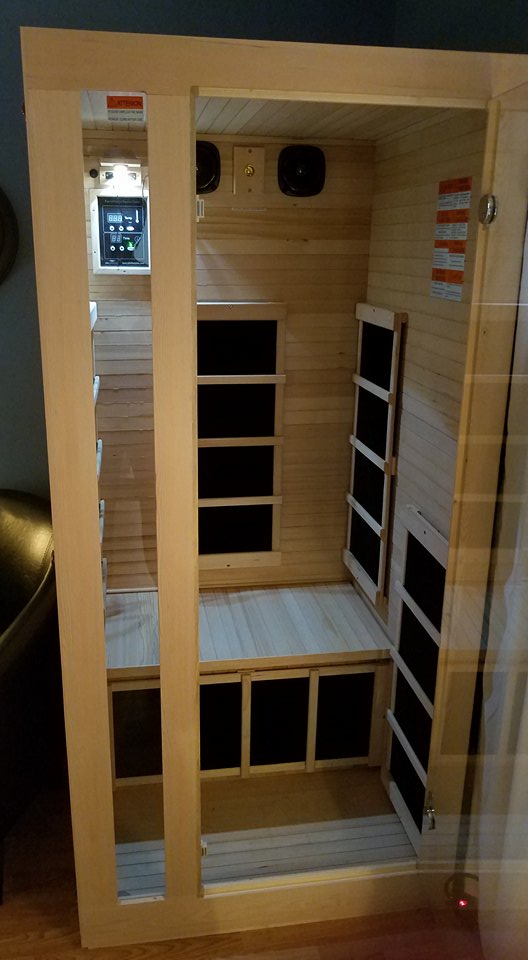
Welcome to a wonderful place of detoxification and rejuvenation!
Infrared Saunas are becoming more and more recognized for their abundance of health benefits. Adding Infrared Sauna Therapy to your normal healthcare routine can provide you with short term and long term effects. The Infrared Sauna uses heat and light to emit infrared light waves. This creates heat in the body which causes you to sweat and release toxins which enhances relaxation and detoxification of the body.
The top noted benefits of Infrared Sauna usage are:
Detoxification
Relaxation
Pain Relief
Weight Loss
Improved Circulation
Skin Purification
Improves quality of life and overall wellbeing
Infrared Sauna Benefits
1. Improves Heart Function
A review by the Department of Family Practice at the University of British Columbia in Vancouver found evidence supporting the use of infrared sauna treatments for normalizing blood pressure and cholesterol levels, treating congestive heart failure, and helping with chronic pain. (2) That means an infrared sauna is a good way to help prevent high blood pressure and improve heart health.
Another study published in the Journal of The Japanese Circulation Society backs up that research, as the study found that infrared sauna treatment can help patients who have heart arrhythmias and suffer from chronic heart failure. Repeated treatments with a 60 degrees Celsius sauna improved functioning of the heart and lowered incidence of ventricular arrhythmias.
Patients were randomized into sauna-treated or non-treated groups, with the sauna group undergoing a two-week program of a daily 60 degrees C far-infrared-ray dry sauna treatment for 15 minutes at a time, followed by 30 minutes of bed rest. Heart rate variability normalized in the sauna group (including having plasma brain natriuretic peptide concentrations decrease) compared with the non-treated group. (3)
2. Helps Lower Chronic Pain, Including Pain from Arthritis
Researchers from Saxion University of Applied Science in the Netherlands found that infrared sauna treatments can help reverse chronic pain with little to no side effects. They studied the effects of infrared saunas in patients with rheumatoid arthritis and ankylosing spondylitis over a four-week period, with a series of eight IR treatments. Sauna therapy was well-tolerated with no adverse effects, and they found that a significant percentage of patients experienced decreased symptoms of pain and stiffness.Fatigue also decreased in both groups of patients compared to before beginning treatment, leading the researchers to conclude that infrared treatment has statistically significant short-term beneficial effects in patients experiencing pain without causing any worsening disease symptoms or unwanted side effects.
3. Lowers Side Effects of Diabetes
A 2010 study published in the Journal of Complimentary and Alternative Medicine found that far-infrared sauna use is associated with improved quality of life in people with type II diabetes, even when compared to other lifestyle interventions. People with diabetes often suffer from complications such as pain, chronic fatigue syndrome, depression, congestive heart failure and other heart problems, but sauna treatment seems to improve pain threshold and contribute to overall well-being — naturally treating diabetes symptoms.Patients were tested at the Fraser Lake Community Health Center in Canada, undergoing 20-minute treatments three times weekly over a period of three months. Patients completed a 36-item short-form health survey before and after the treatment period. The results found that a significant percentage experienced improved physical health, general health and social functioning following treatments, as well as lower stress and fatigue levels.
4. Improves Quality of Life and Overall Well-Being
For many years, patients suffering from chronic pains have used thermal heating treatments to find relief. Studies have found that regular and repeated thermal therapies are promising methods for lowering chronic pain that can interfere with quality of life without the need for medications.



